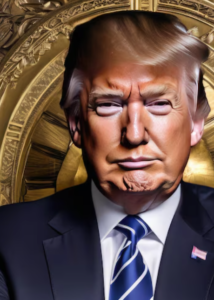$LMT $NOC $BTC
#Ukraine #Russia #USMilitary #ATACMS #UkraineRussiaConflict #MilitaryAid #Geopolitics #NorthKoreaTroops #StockMarket #LongRangeMissiles #Putin #MarketVolatility
President Joe Biden has officially approved the use of American-made long-range ATACMS missiles for limited strikes within Russian territory, signaling a significant shift in US policy amid the ongoing conflict in Ukraine. This decision comes as a direct response to recent developments, notably the involvement of North Korean troops supporting Russia and the intensification of Russian attacks on Ukrainian cities. The ATACMS missile system, manufactured by military contractors like Lockheed Martin ($LMT) and Northrop Grumman ($NOC), has a range reaching up to 300 kilometers, positioning it as a poignant weapon to counter both Russian and North Korean forces stationed near Russia’s Kursk region. This policy shift could have wide-reaching consequences for global defense markets, likely driving a spike in defense-related stocks and heightened investor interest in companies in the defense contracting sector. As geopolitical tensions rise, this move could further increase market volatility, prompting a flight into traditionally “safer” or defensive sectors of the economy, boosting firms like $LMT.
Moscow has reacted sharply to Biden’s decision, with a spokesperson for President Vladimir Putin warning of an “appropriate” reaction against these escalatory actions. Russia’s response is critical, as its economic and financial systems have been delicately balancing under the pressures of global sanctions and the prolonged military expenses associated with the Ukraine invasion. The likelihood of a Russian economic response—perhaps through cyber-attacks, further sanctions, or restrictions on its energy exports—could profoundly impact energy prices and, therefore, markets worldwide. A further restriction on oil supply from Russia could shoot crude prices higher, potentially causing inflationary pressures to re-emerge, particularly in European countries that are heavily reliant on Russian energy imports. Investors would do well to keep a close eye on crude oil futures and energy sector stocks, which may see sharp moves if tensions escalate further.
Amid this geopolitical turmoil, the broader financial markets are grappling with simultaneous uncertainties. The timing of this decision comes at a particularly delicate moment for international and US domestic markets, with Donald Trump poised to re-enter the political scene within two months. Trump’s previously stated skepticism regarding continued military aid to Ukraine raises questions not only about the future of the conflict but also about the sustainability of defense-related market rallies. Should future cuts to military aid be made, defense stocks that have benefited from sustained military spending may face pullbacks. Simultaneously, Trump’s far-reaching foreign policy decisions could influence broader sectors of the market, from energy companies dependent on Russian stability to cybersecurity firms expected to better shield the US from a retaliatory Russian cyber offensive.
Aside from traditional markets, these developments may also feed into volatility within the cryptocurrency market. Given that crypto assets like Bitcoin ($BTC) have often benefitted during times of market turmoil as a perceived safe-haven asset, investors may turn to digital currencies to hedge against geopolitical risks and global conflicts. However, regulatory risks and heightened scrutiny of crypto markets also remain considerable, especially as national security ties into financial policy. Analysts expect that the next several months will see substantial geopolitical tension that could disproportionately impact sectors tied to military, energy, and even digital assets, creating both new opportunities and risks for investors globally.











Comments are closed.